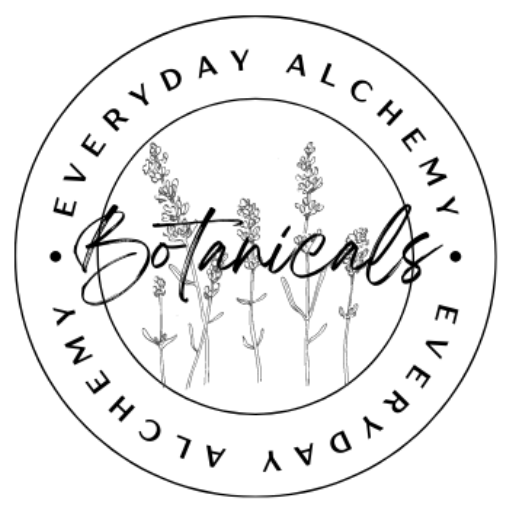Throughout my practice as an herbalist, many people have come to me wanting recommendations on herbs to take for a specific ailment. The common misconception here is that herbs work like medication. While there are herbs with primary mechanisms of action suitable for particular imbalances, I find it beneficial to start by incorporating herbs that promote general wellness. This way, you’re helping your body combat the many imbalances that are likely contributing to the symptoms you’re presenting with. In this blog post, I’ll highlight the herbs that have been particularly helpful for me in maintaining a good baseline of health.
5 Best Herbs for Good Health
- Rhodiola (Rhodiola rosea)
- Red Ginseng (Panax ginseng)
- Ashwagandha (Withania somnifera)
- Holy Basil (Ocimum sanctum / Ocimum tenuiflorum)
- Astragalus (Astragalus membranaceus)
1. Rhodiola (Rhodiola rosea)

This herb, also known as golden root or Arctic root, is native to the cold, mountainous regions of Europe and Asia. It has been used for centuries to improve physical and mental endurance, as well as to reduce stress and fatigue. Some studies have shown that Rhodiola can improve mood, reduce anxiety, and increase energy levels. It is also believed to have anti-inflammatory and immune-boosting properties.
Due to an increase in demand in recent years (thanks to the wellness industry) the natural population of Rhodiola in China and Russia, where it’s most commonly sourced, has faced severe overharvesting.
In efforts to preserve the plant's long-term survival, other countries have begun cultivating Rhodiola. In Alaska, Rhodiola is grown in a controlled environment, which allows for the plant to be harvested without damaging the natural population. This ensures that the plant can continue to be used for its medicinal properties while also being sustainably managed.

I personally get Rhodiola from Alaska Rhodiola as I’ve visited their farms and worked with their team to process the 2021 batch of Rhodiola tinctures (which are arguably the freshest in the world).

2. Red Ginseng (Panax ginseng)

Red Ginseng, native to Asia, is often used to improve brain function, boost energy levels, and reduce stress. Some studies have shown that red ginseng can improve memory and cognitive function, as well as lower blood pressure and improve symptoms of erectile dysfunction. It is also believed to have anti-inflammatory and immune-boosting properties.
3. Ashwagandha (Withania somnifera)

Ashwagandha is another herb that has been used for centuries in Ayurvedic medicine to improve health and well-being. It is native to India and is often referred to as "Indian ginseng." It is believed to have a variety of health benefits, including reducing stress and anxiety, improving brain function, and boosting the immune system. Some studies have also shown that ashwagandha can improve fertility and sexual function, as well as reduce inflammation and lower blood sugar levels.
4. Holy Basil (Ocimum sanctum / Ocimum tenuiflorum)

Holy basil, also known as Tulsi, is another herb that has been used in Ayurvedic medicine for centuries. It is native to India and is considered a sacred plant in Hinduism. Holy basil is believed to have a variety of health benefits, including reducing stress and anxiety, improving digestion, and boosting the immune system. Some studies have also shown that it can lower blood sugar levels and reduce inflammation.
5. Astragalus (Astragalus membranaceus)

Astragalus is native to China and has been used in traditional Chinese medicine for centuries. It is believed to have a variety of health benefits, including boosting the immune system, improving heart health, and reducing inflammation. Some studies have also shown that astragalus can improve physical and mental endurance, as well as reduce fatigue and improve sleep.
These are just a few examples of the many herbs that can have a positive impact on your health and well-being. Whether you are looking to reduce stress, improve brain function, or boost your immune system, these herbs may be worth considering as part of a healthy lifestyle.
Takeaway
If I’ve learned anything so far in my studies as an herbalist, it’s that herbs are allies. They work subtly and beneath the surface to help your body move back into balance over time. When you give them the time and space to make a difference in your life, they do.
*Disclaimer: This article is not intended to give medical advice. It is recommended to consult a physician before beginning any herbal supplement regime regarding specific dosages or possible drug interactions.
*This article includes affiliate links. This means I will receive a commission if you choose to purchase the product using that link. Please do not feel obligated to do so. You can trust that the brands I do feature are those that I find ethical and have personally purchased from in the past.
References
Validation of traditional claim of Tulsi, Ocimum sanctum Linn. as a medicinal plant. https://pdfs.semanticscholar.org/1300/9e5d5c8b66b4c999e3fd92c9d50a56634412.pdf
Scientific basis for the therapeutic use of Withania somnifera (ashwagandha): a review.
Rosenroot (Rhodiola rosea): traditional use, chemical composition, pharmacology and clinical efficacy.

